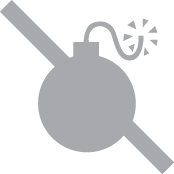PROGRAM WORKSHOP FASCIAL MANIPULATION®:
( 3 hours)
Speaker:
Stecco Antonio M.D. PhD
Assistant Professor, Rusk Rehabilitation, New York University School of Medicine
|
Introduction of the fascia manipulation technique. |
10 min |
|
|
Physiology • The myofascial continuity • The role of the hyaluronic acid • The muscle spindles in relation to the endomysium and the fascia system • The pathology of fascia |
90 min |
|
|
Questions |
5 min |
|
|
Biomechanical model • Myofascial Unit, Centre of Coordination, Centre of perception. • Sequences, management of posture, spatial planes • Spirals, centres of fusion, diagonals. |
30 min |
|
|
Questions |
5 min |
|
|
Assessment process • Plasticity and malleability of the fascia • Clinical rationale and Assessment Chart • Data, Hypothesis, Verification, Treatment |
30 min |
|
|
Questions and Discussion concerning Fascial Manipulation technique |
10 min |
Specific Learning Objectives :
Upon completion of this course, participants will be able to:
1. Highlight the gross anatomy and histology of the superficial and deep fascia, including the significance of myofascial/myotendinous expansions.
2. Describe the pathophysiology of fascia, elaborating on the concept of the myofascial sliding system and its contribution to myofascial pain syndrome.
3. Explain the specific clinical assessment process via illustration of the Assessment Chart and the clinical rationale behind it as well as discuss the therapeutic advantage of the plasticity and malleability of fascia.
4. Design an appropriate treatment algorithm to alleviate chronic myofascial pain
Workshop description
This workshop will illustrate new studies of the gross and histological anatomy of the human fasciae, and explain the biomechanical model for the human fascial system currently applied in the manual technique known as Fascial Manipulation©. The model represents a three dimensional interpretation of the fascial system. Its hypothetical foundations are fruit of more than thirty years of analysis of anatomical texts and clinical practice. More recently, dissections of unembalmed bodies have provided anatomical verification of numerous hypotheses including the fascial continuity between different body segments via myotendinous expansions and the possible distribution of tensional forces. This workshop will also propose new studies concerning the histological characteristics of superficial and deep fasciae (fibre content, structural conformation, and innervation) and debate the role of deep fascia in proprioception. The Fascial Manipulation© technique is based on the concept of myofascial units (mf units) united in myofascial sequences, and involves manual friction over specific points (called Centres of coordination and Centres of fusion) on the deep muscular fascia. This underlying rationale and the resultant analytical process guides the therapist in the combination of points to be treated and allows therapists to work at a distance from the site of pain, which is often inflamed due to non-physiological tension. Musculoskeletal disorders commonly treated include low back pain; tendinitis, sprains, peripheral nerve compressions, and neck pain syndromes, whereas visceral dysfunctions can include gastritis, irritable colon syndrome, constipation, and dysmenorrhoea.










